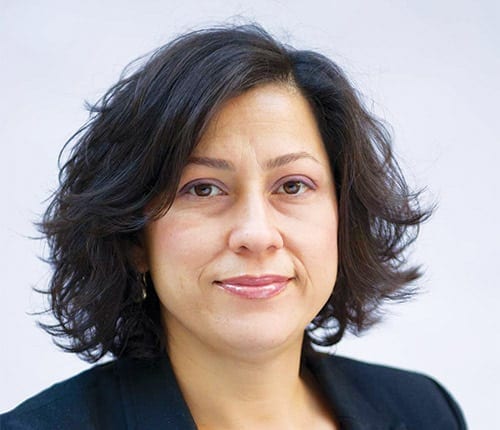
As someone who grew up in Argentina and came to Massachusetts as an eight-year-old girl, I considered our state to be a place of great opportunity for Latinos like myself.
My mom went to college in the Commonwealth, and my father continued his work in medicine. With their love and support, I was able to get a solid education and later launch my career in Boston’s nonprofit community.
I was fortunate to have those opportunities, but as I look around now, something has changed. I worry that my daughter and her generation face a far bleaker outlook.
Shamefully, Massachusetts now holds the designation as the “Worst State for Hispanics and Latinos,” in terms of economic inequality, according to a study by 24/7 Wall Street, which was published in USA Today.
What does that mean? By a number of socioeconomic measures — poverty, income, educational attainment, unemployment, and incarceration — Massachusetts has the worst inequality between white and Hispanic residents — in the entire United States.
While the typical Bay State white household earns $82,029 a year, the median income for Hispanic households is just $39,742.
This isn’t the first study to shine a light on such inequalities. Previous reports from the Greater Boston Latino Network and Boston Foundation showed Latinos are largely absent from positions of power across the region.
None of our statewide elected officials are Latinos, and there are few in the Legislature or city halls across the state. In Boston Public Schools, Latinos make up 40 percent of our students, but less than 10 percent of teachers.
The Massachusetts Board of Elementary and Secondary Education recently missed its opportunity to select the first ever Latino Commissioner of Education, passing up a Latina candidate with impeccable credentials for a more well-connected white male.
That’s the story we hear across the state. And it means that my daughter and her friends have woefully few role models to look up to. And as they attend college they may feel even more isolated. Just 23 percent of Latino adults in Massachusetts hold a college education.
In the corporate sector, the outlook is similarly dim. Highly-educated and experienced Latinos get pigeonholed into token positions such as “Director of Diversity and Inclusion” so companies can claim they have addressed the diversity problem, while leaving Latinos out of the C-Suites.
As a result, our corporations pay lip-service to diversity, while never creating the policies or pipeline to support the next generation of colorful talent.
So what is the solution to these inequalities? How should our political, academic and corporate leaders ensure that Massachusetts sheds our shameful designation as the “Worst State for Latinos?
First a bit of self-reflection. We need to look in the mirror and recognize that things have not gotten better for Latinos — not since my family first came here from Argentina.
Next we need to push. Push for our political leaders, schools and businesses to be more diverse. Every major position should require that people of color be interviewed in the hiring pool. And if they are not, the position should be taken down and re-posted to target a more diverse audience.
More government contracts should go to minority-owned businesses. This would create wealth for a community that has a strong entrepreneurial spirit, but no army of lobbyists to represent them.
And in our schools, we need to set a requirement that our teachers, administrators and officials represent the demographics of our growing Latino student population. If Latinos make up 40 percent of students, they must also make up 40 percent of the teachers leading them. Bar none.
This would allow my daughter to look up to the front of the class and have the same feeling a hope that I felt as a little girl coming to Massachusetts a generation ago.
Alexandra Oliver-Davila is executive director of Sociedad Latina, a community non-profit based in Roxbury, and a member of the Boston School Committee.






